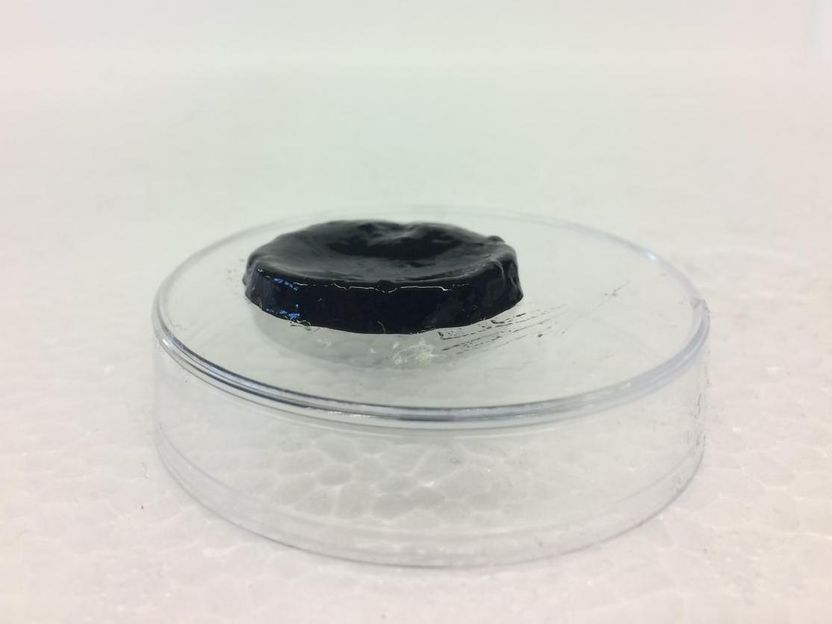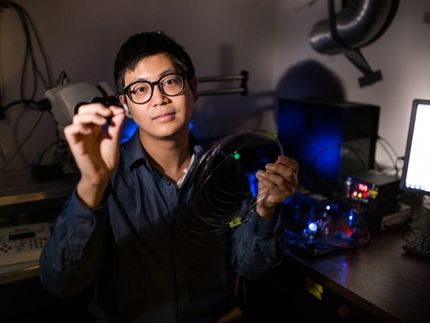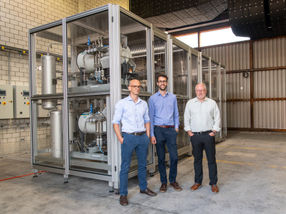A starch and graphene hydrogel geared towards electrodes for brain implants is developed
Hydrogels with electrical and antibacterial properties suitable for neural interfaces
hydrogels are physical and chemical polymer networks capable of retaining large quantities of liquid in aqueous conditions without losing their dimensional stability. They are used in a whole host of applications and when various components are added to them, they acquire specific properties such as electrical conductivity. This was the path followed by the Materials + Technology research group in the Department of Chemical Engineering and Environment of the UPV/EHU's Faculty of Engineering - Gipuzkoa, and for its hydrogel they selected a biopolymer that had not been used hitherto for applications of this type: starch. "One of our lines of research focuses on starch and we regard it as having biological, and physical and chemical properties suitable for producing hydrogels," said Kizkitza Gonzalez-Munduate, a member of the group.

Sample of the hydrogel developed
Kizkitza Gonzalez / UPV/EHU
When creating the hydrogel, they took its use in neural interfaces into consideration, in other words, the components responsible for the electrical connection in implants that interact with the nervous system. "Due to the fact that the traditional electrodes of neural interfaces made of platinum or gold, for example, are rigid, they require conductive polymer coatings to bring their flexibility closer to that of neural tissue. Right now, however, smaller devices are being called for and also ones that offer better mechanical, electrical and biological properties," explained the researcher.
The hydrogels developed "address these demands very well", explained Gonzalez. To provide the hydrogel with electrical conductivity, they resorted to graphene, "a material of great interest. It provides electrical properties that are highly suited to the hydrogel, but this also has a drawback: it is not easily stabilised in water. We used extracts of salvia to overcome this obstacle and to render the graphene stable in an aqueous medium. These extracts also make the hydrogel even more suitable, if that is possible, for use in medicine as it also has antimicrobial and anti-inflammatory properties", she added.
Another of the distinctive features of this research was the use of so-called click chemistry to produce the hydrogel. "It is a strategy that in recent years has been grabbing the attention of the scientific community, because, unlike other means of synthesis, click chemistry does not tend to use catalysts in the reactions; in addition, no by-products are generated and they are high-performance reactions," said the researcher Gonzalez.
Although this product was designed for a very specific application, the researcher recognises that this product of bioengineering has a long way to go until it can be used in patients. "It was a piece of research at an initial level focussing on the engineering side relating to the material. Now, the various levels will have to be overcome and the corresponding tests designed".
Original publication
Original publication
Kizkitza González and Clara García-Astrain and Arantzazu Santamaria-Echart and Lorena Ugarte and Luc Avérous and Arantxa Eceiza and Nagore Gabilondo; "Starch/graphene hydrogels via click chemistry with relevant electrical and antibacterial properties"; Carbohydrate Polymers; 2018
Topics
Organizations
Other news from the department science

Get the life science industry in your inbox
By submitting this form you agree that LUMITOS AG will send you the newsletter(s) selected above by email. Your data will not be passed on to third parties. Your data will be stored and processed in accordance with our data protection regulations. LUMITOS may contact you by email for the purpose of advertising or market and opinion surveys. You can revoke your consent at any time without giving reasons to LUMITOS AG, Ernst-Augustin-Str. 2, 12489 Berlin, Germany or by e-mail at revoke@lumitos.com with effect for the future. In addition, each email contains a link to unsubscribe from the corresponding newsletter.





















































